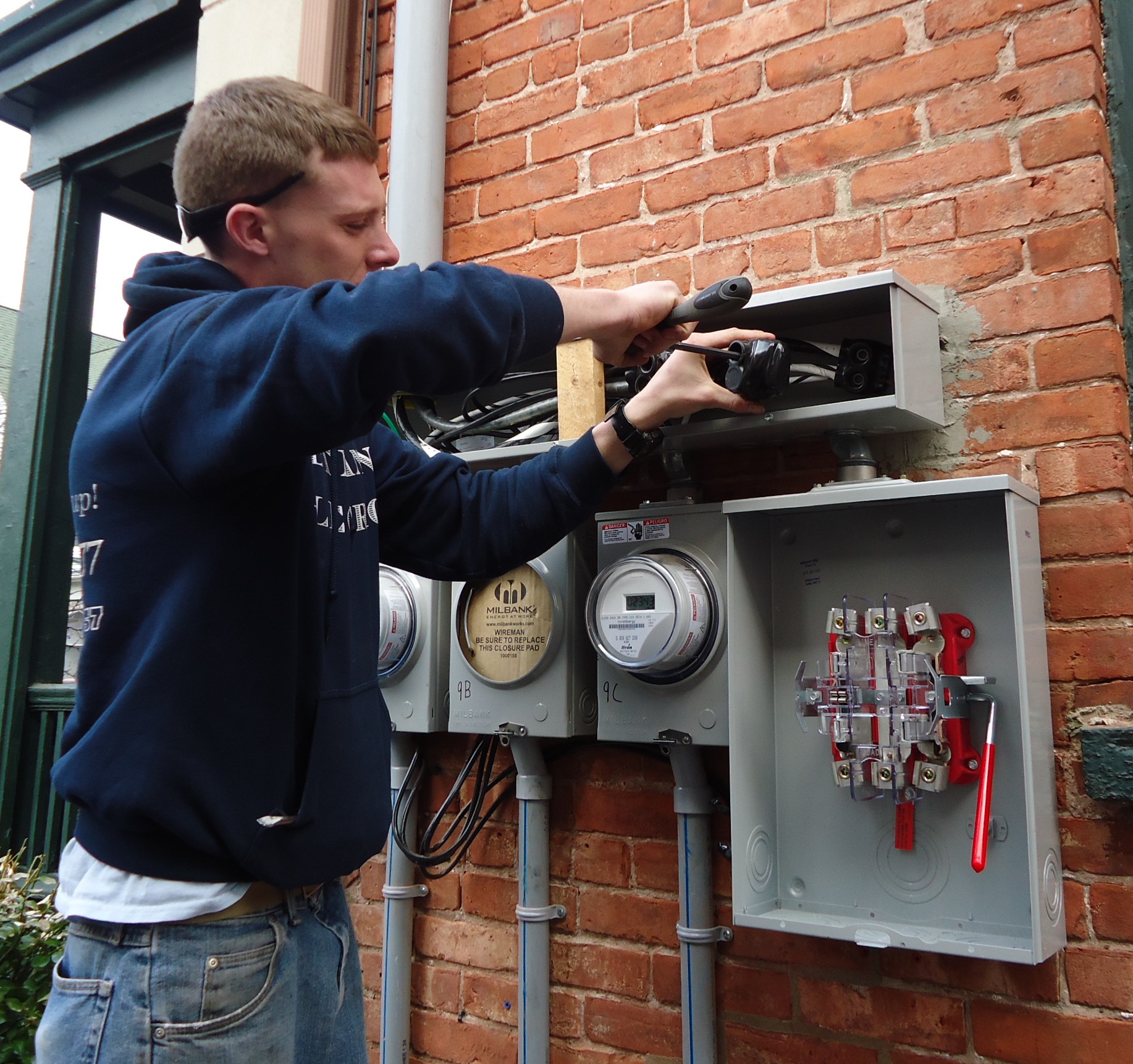Becoming an HVAC technician allows you to join an in-demand field and take control of your financial future. Like most technical fields, there are a number of certifications that an HVAC technician can get to improve their career prospects. In this post, we’ll go over five of the most important certifications that an aspiring HVAC technician can add to their resume. These are the certifications that will show potential employers that you are at the top of your field and are a worthy addition to their team of HVAC professionals.

EPA Certification for HVAC Technicians
HVAC refrigerants that are mishandled can cause damage to the ozone layer. For this reason, the Environmental Protection Agency requires any technician who works with refrigerants to pass a certification test in order to prove that they can safely handle these hazardous materials. EPA certification comes in 3 different levels. Those levels are:
1. Type I EPA Certification
This certification covers the repair and maintenance of small HVAC appliances. This would include things like window A/C units and residential refrigerators and freezers.
2. Type II EPA Certification
This level is for larger appliances that operate at high pressure. It would include things like outdoor A/C units and commercial refrigerators.
3. Type III EPA Certification
Low-pressure systems that do not fit under the small appliance category are covered by this certification.
If an HVAC technician has all 3 of the above certifications, they are said to be universally certified and can legally work with refrigerant in any piece of HVAC equipment.
R-410A Certification for HVAC Technicians
A special certification is not legally required to work with R-410A refrigerant, but due to its extremely high-pressure, technicians working with this particular refrigerant are advised to take a special training course in order to safely work with it. Although it is not a legal requirement, many employers are going to want to see proof that you are trained in the special characteristics of R-410A before hiring you for a job that will entail working with the substance.
Manufacturers of HVAC equipment are also aware of the special skills required to safely use R-410A and may require HVAC professionals who purchase an R-410A system from them to complete a training course or show proof that they have completed one from someone else. With R-410A being such a commonly used refrigerant, this certification should be considered mandatory despite not being legally required.
Indoor Air Quality Certification for HVAC Technicians
In many cases, most of the air circulating through a building comes through the HVAC system. This means that it is the HVAC system, and by extension, the HVAC technician, who is most responsible for the quality of the air in that building. A poorly installed or maintained HVAC system can push contaminants in the air that can harm the inhabitants of the building. The effects of these contaminants could range from causing or irritating allergies to more concerning issues like mold or mildew collection which can cause illness.
An indoor air quality certification lets potential customers, and employers, know that you are capable of providing an HVAC installation or repair that provides the cleanest air possible to those inside of the buildings that you work on. You will learn how to install air quality systems and what potential red flags to look for in an HVAC system.This certification is not as mandatory as the first two mentioned above, but is still important enough to make our list of the top 5 HVAC certifications.
NATE Certification for HVAC Technicians
North American Technician Excellence is a nonprofit organization that certifies HVAC technicians. The organization was founded in 1997 by a committee of industry experts and has been supported by the entire HVAC industry ever since. Because their tests are rigorous, the organization has split its certifications into several individual areas of HVAC. For example, you may test solely for air conditioning or for oil heating. There are close to a dozen such certifications to choose from. Technicians can of course test for more than one certification.
NATE certification is completely voluntary from a legal standpoint, but employers may require NATE certification. NATE testing goes beyond teaching you how to safely handle the equipment and measures your knowledge on the fundamentals of HVAC technology. Being NATE certified lets your customers and employers know that you have the knowledge required to diagnose and repair HVAC equipment at a professional level.
Preventive Maintenance HVAC Certification
Preventive maintenance is like going to a doctor for a checkup so he can catch problems before they turn into something that requires surgery. In the HVAC field, repairs can get expensive. A good preventive maintenance technician will be able to catch potential problems during routine maintenance calls before they become major problems that cost the customer more money down the road. Customers are happy to pay for such routine maintenance because they know it saves them money in the long run.
A preventive maintenance HVAC certification will give you the knowledge necessary to recognize and diagnose those problems early on so that your customers will have peace of mind when they call you for routine maintenance. This is another important certification to have because employers know that the best business isn’t the one that gets the call on a hot summer Sunday when an A/C emergency happens, but the company that helps the customer avoid that emergency in the first place.
HVAC Training at Southern Careers Institute
Each of these tests requires in-depth knowledge of the areas of HVAC that they test for. If you want to start on the path to a rewarding career as an HVAC technician, you’ll need a quality training partner. Southern Careers Institute has an HVAC program that will train you to work on HVAC equipment at both the commercial and residential levels so your career path is wide open.
After our expert instructors have provided you with the hands-on training you need to feel confident in your new career, our career services team will help to match you with an employer looking for someone with your newly acquired skills. Learn more about our HVAC program today to learn more about our curriculum. If you like what you see, you can apply now to get on your way to a career as an HVAC technician.
This article was published on: 10/4/19 2:06 PM
* SCI does not guarantee employment or a starting salary upon graduation, completion, or withdrawal from SCI. As an accredited post-secondary institution, SCI has various federal financial assistance programs available for students who qualify and are enrolled in SCI programs. This does not apply to seminar students.
GI Bill® is a registered trademark of the U.S. Department of Veterans Affairs (VA). More information about education benefits offered by VA is available at the official U.S. government Web site at http://www.benefits.va.gov/gibill.

